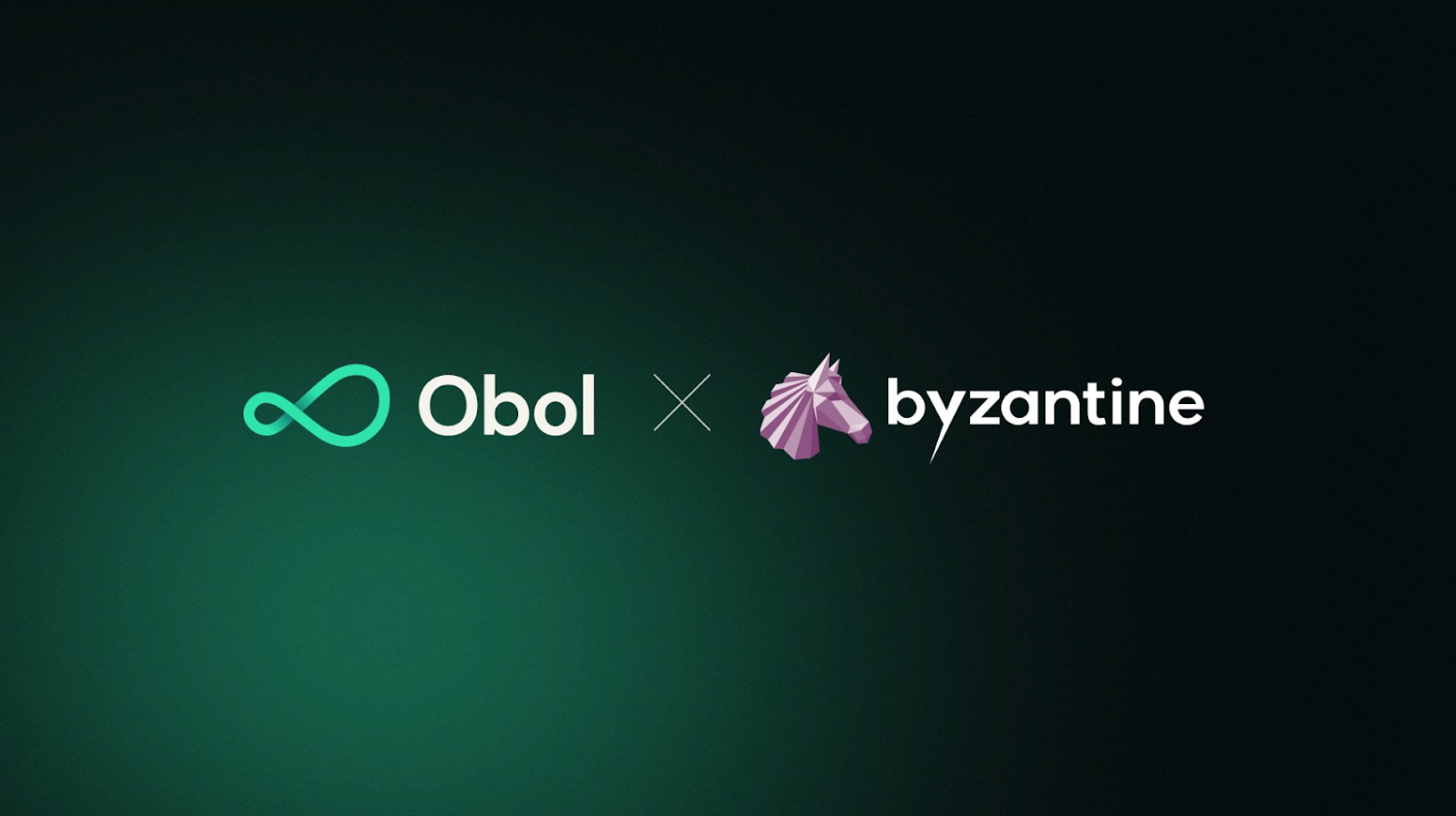Byzantine Finance Chooses Obol DVs for Restaking Security & Decentralisation
Byzantine chose to build their native restaking vaults exclusively on Obol Distributed Validators (DVs), to maximise decentralisation & security of the protocol.

Byzantine Finance is building an open aggregation layer for restaking, with a guiding principle of “Decentralisation first. Always.” To that end, Byzantine chose to build their native restaking vaults exclusively on Obol Distributed Validators (DVs), to maximise decentralisation & security of the protocol.
Raising the Stakes
Restaking is a new primitive allowing ETH stakers to opt in to securing additional network services built on top of Ethereum. Users that stake ETH natively or hold liquid staking tokens (LSTs) can opt-in to restaking smart contracts, unlocking the potential to earn additional rewards by validating for Actively Validated Services (AVSs). With greater reward comes greater risk, and downtime or slashing on the L1 will have effects and penalties on the restaked AVS as well, raising the stakes for node operators and stakers.
DVs: the Best Foundation for Restaking
The adoption of distributed validators (DVs) enhances validator performance and reduces risk for node operators and stakers. DVs distribute validator operations among multiple node operators, eliminating the need for all nodes to be online simultaneously for the validator to perform its duties, and introducing byzantine fault tolerance, protecting against operator collusion.
As explained in detail on the Byzantine Finance blog, a distributed validator represents a much stronger commitment for AVS support than a traditional validator, with greatly reduced risk of slashing and inactivity penalties. This is what makes DVs the future of staking - lower risk for the same staking yield. As the restaking marketplace evolves, risk-conscious investors will carefully consider their choice of restaking providers to restake with, and are likely to express preference for restaking vaults built on DV-staked ETH.
Why Obol?
Stakers on Byzantine Finance are protected from the risk of slashing or poor performance not only by DVs, but also a node operator prepayment model that ensures the staker’s yield. Additionally, an innovative auction marketplace for node operators ensures low fees for stakers. Given these unique functionalities, Byzantine requires the flexibility of working with an infrastructure agnostic middleware like Obol’s, which does not require a custom token model or replacement of the traditional validator client.
We look forward to working together with Byzantine Finance to provide more optionality and decentralisation to the staking ecosystem!